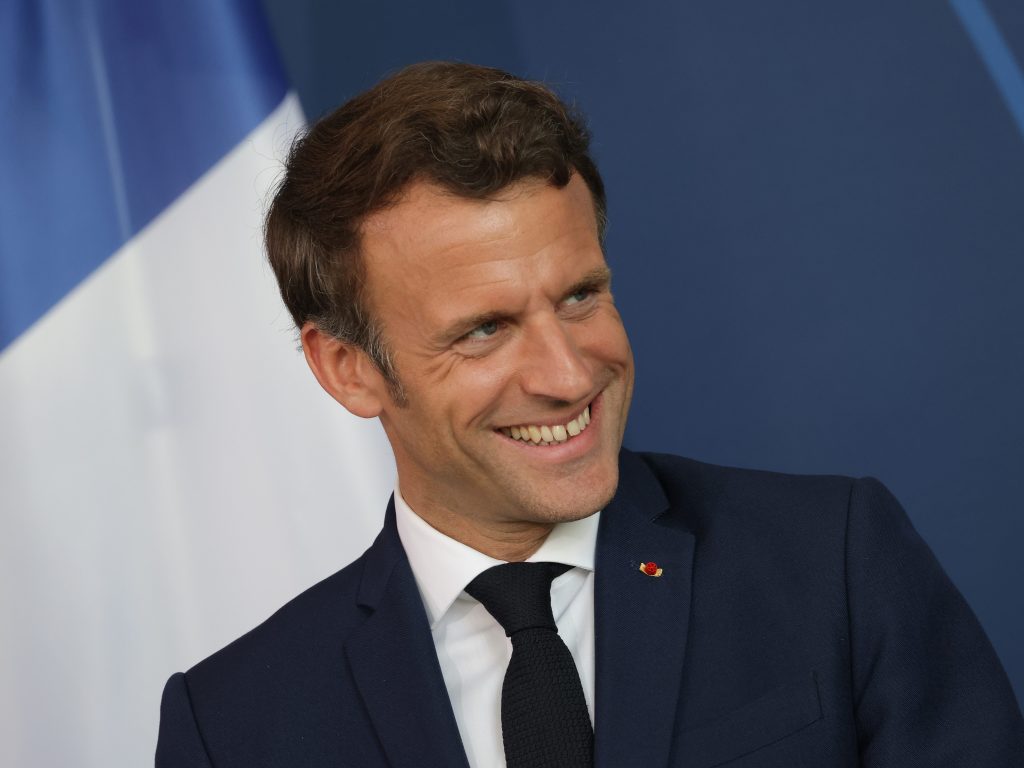- Macron suggested opening a new "European political community" that would include Brexit Britain and Ukraine.
- It would be "a new space for political cooperation" and freedom of movement, the French president said.
- He said it could take "decades" for Ukraine to join the EU.
French President Emmanuel Macron suggested it could take "decades" for Ukraine to join the European Union and suggested integrating it into an outer "European political community" that would also include post-Brexit Britain.
Macron — whose opposition to Brexit has caused a sometimes tense relationship with UK Prime Minister Boris Johnson — said the group would also be open to other countries hoping to join the EU.
Ukraine applied to join the EU in early March, shortly after Russia's invasion, but member states opposed speeding up its application process.
In a keynote speech to the European Parliament in Strasbourg on Monday, Macron said it was the European Union's "historic obligation … to create what I would describe before you today as a European political community."
This would allow "democratic European nations … to find a new space for political cooperation, security, cooperation in energy, transport, investment, infrastructure, the movement of people."
The EU could not be the continent's only bloc, he said.
"The United Kingdom decided to leave our European Union but it can have a place in this political community," he said, noting that others such as Bosnia-Herzegovina could also sign up.
It would also be a better solution for Ukraine, he said, adding that it should not expect a swift accession to the EU.
"I am saying this in all honesty — honesty that we owe to the Ukrainians," Macron said. "We can have an accelerated process … to accept candidate status for Ukraine but we know that given our standards and the criteria, it would probably take decades for Ukraine to really join the European Union."
It would not "prejudge future membership," nor would it be "closed to those who have left" the EU, he said.
Macron did not give any indication on whether creating such a community was a concrete EU plan and, if so, what the timeline for opening the bloc would be.
During a trip to Berlin later in the day, Macron — who was recently reelected as French president — confirmed that Britain would be invited to "take its full place" in a new community.
But such a prospect would appear unlikely, given the UK government's resistance to joining the European Free Trade Agreement (EFTA), arguing that it would undermine a core purpose of Brexit to regain control of laws and borders.
Conversely, Westminster is braced for the government to pull further away from the EU as Liz Truss, the foreign secretary, is said to be bringing forward new legislation that will rip up the Northern Ireland protocol in a bid to end checks on goods from Britain, strip powers from the European Court of Justice, and remove requirements for Northern Irish businesses to follow EU regulations.
That is likely to put London on a fresh collision course with Brussels.
